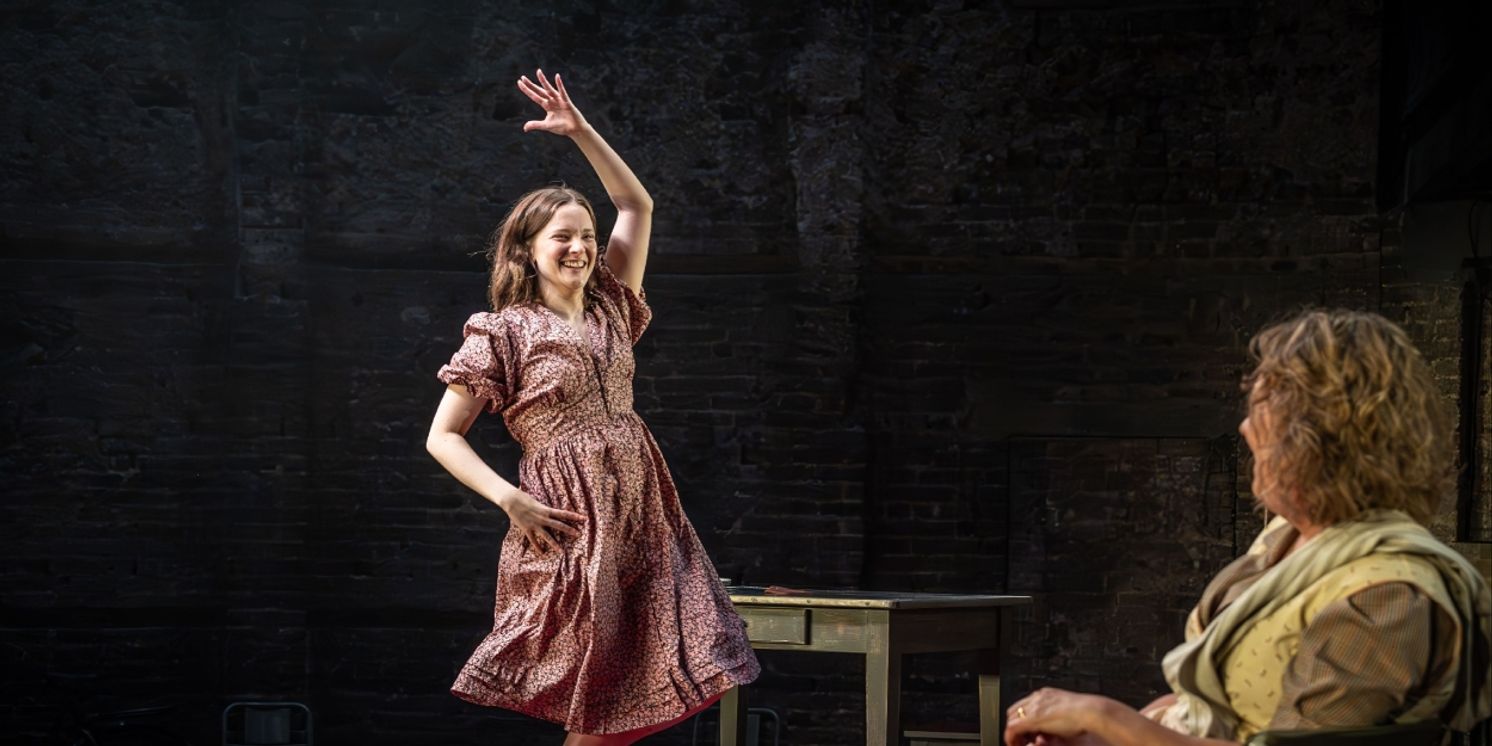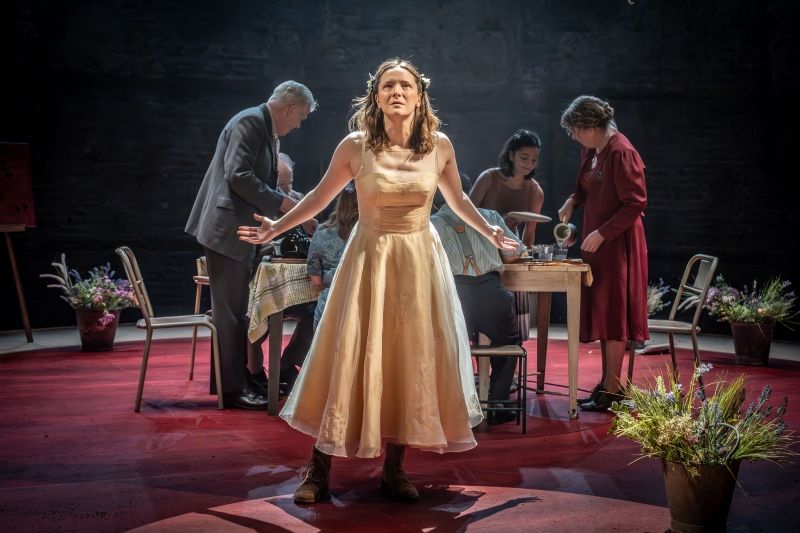Review: ROOTS, Almeida Theatre
The Almeida Theatre's Angry and Young season starts with a bang

![]() The Almeida’s ”Angry and Young” season is a stroke of curatorial brilliance. Arnold Wesker’s 1958 Roots and John Osborne’s 1956 Look back in Anger face off, a roaring lion in one corner, a growling tiger in the other.
The Almeida’s ”Angry and Young” season is a stroke of curatorial brilliance. Arnold Wesker’s 1958 Roots and John Osborne’s 1956 Look back in Anger face off, a roaring lion in one corner, a growling tiger in the other.
When they premiered, they led the cavalry charge of social revolt. A new generation, burdened by the hangover of the Second World War, suddenly had a voice. And that voice screeched with fiery indignation dragging British theatre kicking and screaming from cushioned drawing rooms to the grime caked kitchen sink. Here’s the question: does the anger echo down generations or is the noise lost in time?
Beatie Bryant’s homecoming to rural Norfolk is tinged with tension. London life has sunk its urban teeth into her imagination. Ronnie, her socialist boyfriend, has awakened her class consciousness, now she chastises her family for narrow minded provincialism, a project of her shame of their working-class identity. Her jagged anger slices across generational and geographic lines: her parents buckle their emotions behind a stiff upper lip, but she fires in all directions.
Diyan Zora’s direction is surgically slick gently teasing out ideas with scalpel precision rather than flamethrower force. Initially she casts Roots as a museum piece, the stage rotates gingerly as if the characters are an exhibition display. We scan and scowl with analytical eyes only to be caught off guard when Beatie melts and swirls in a vortex of emotion. Soon it pulsates with a life of its own.
But there’s the brilliant twist. Roots has evolved with time, a new identity forged for 2024. Beattie is drunk on the hope that social change is not just possible but inevitable. Today her political optimism has melted into air. The fist-clenched hope of a socialist society has all but fizzled out, the inescapable boot of neo-liberalism stamped out the flame.
The final act sees the Bryant family gather awaiting the arrival of Ronnie. He becomes a Godot-like figure, it’s not just his physical absence, but his symbolic one too, that lingers louder than ever. Maybe Wesker knew what he was doing all along. Maybe he has been waiting 66 years to slyly slap us all in the face with the cynical foresight.

Morfydd Clark’s Beatie is the fulcrum of the piece, her wide-eyed innocence and rosy cheeked optimism teeters between cruelty and love. She is the loose thread in the tight knit family dynamic. Though you can feel the woolly jumper warmth radiating from the ensemble cast, you sense that its embrace is as stifling as it is comforting. Sophie Stanton is quietly astonishing opposite her as her mother, effortlessly conjuring tender admiration for her stoic resolve and pity for her entrapment in domestic ennui.
Do the angry young men and women of today recognise their beat generation counterparts? Yes and no. Beatie’s spiky indignation is palpable, but she has the luxury of channelling it towards a politics that promises a better future. Do we have hope of change any more when there is no alternative?
Roots plays at the Almeida Theatre until 23 November
Photo Credits: Marc Brenner
Reader Reviews
Videos

